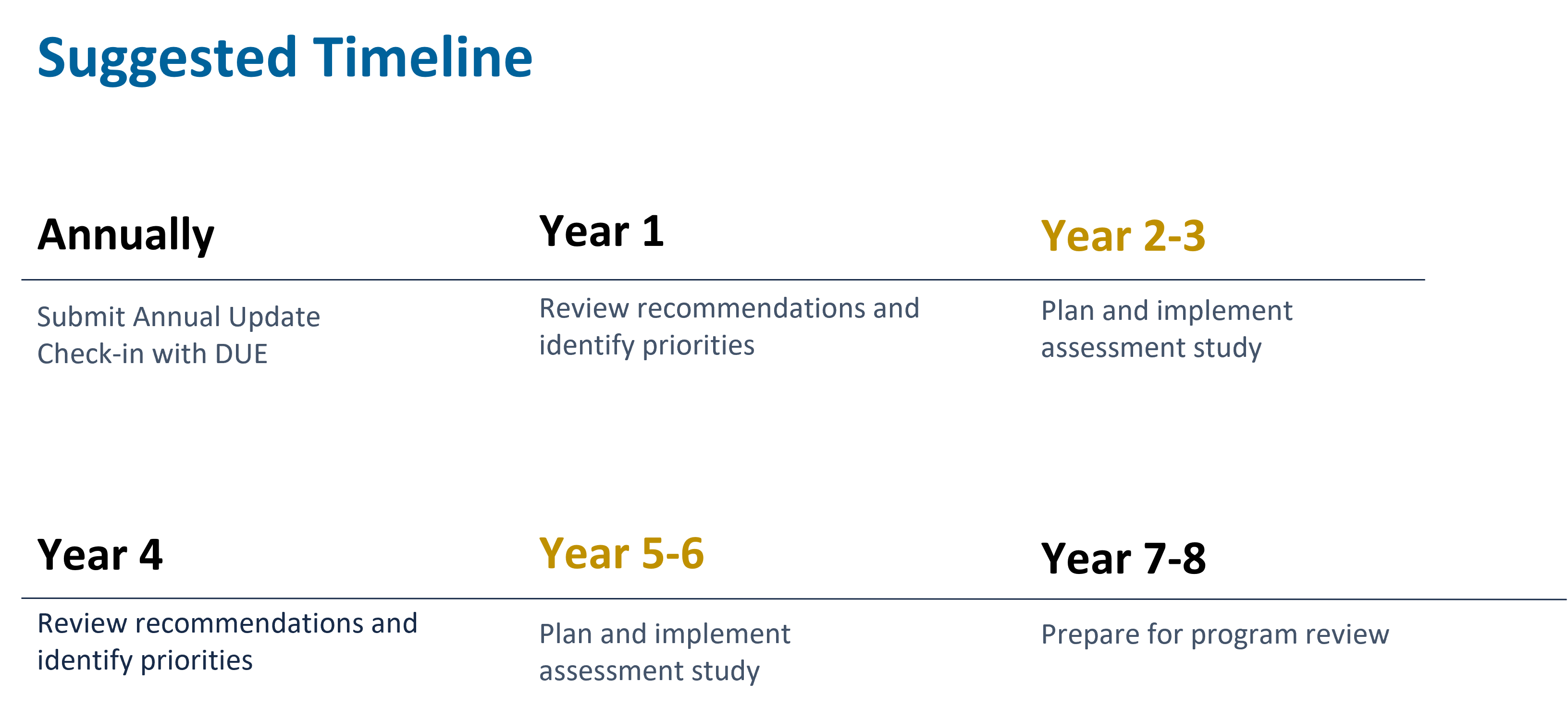Program Reviews
- Preparing for Program Review
- Review Guidelines & Reporting
- Program Review Schedule
Preparing for the review is important. While program review occurs every 7-8 years, units are encouraged to routinely engage in a process of assessment for continuous improvement. During program review, units are asked to report on program learning outcomes as well as curricular improvements introduced in response to their assessment findings. Because reviews happen only once a decade, they provide a valuable opportunity to step back, reflect on the program as a whole, and take stock of both accomplishments and areas for growth.
Purpose of Program Review:
Program reviews are conducted by the Academic Senate’s Undergraduate Council (UGC) and Graduate Council (GC). The goal is to strengthen programs by ensuring a student-centered focus, advancing equity in education, and aligning with the standards of our accrediting agency (WASC Senior College and University Commission).
What to Expect:
How to Prepare:
>> Review the Self-Study Guidelines <<
The Self-Study Report is designed to give an instructional unit the opportunity to examine the whole of its educational programs, assess their impact, and plan for the future. You don’t need to reinvent the wheel—the sections are intended to give you a clear structure for organizing your reflections.
The report is structured into sections that guide units to reflect on areas such as:
For combined reviews, the undergraduate self-study is embedded within the broader report, so all perspectives are addressed together.
>> Use Assessment as Evidence <<
Need support? Schedule a consultation with DUE (contact Hailey Caraballo at hlcaraballo@ucsd.edu) for resources and guidance, and to discuss how your ongoing assessment activities can be captured and framed for the review.
>> Gather and Review Data <<
Start with your Tableau data dashboards. Review the data you already have access to and note any additional information you may need for the self-study and report writing. Dashboards typically include multi-year views of course scheduling and enrollment patterns, student demographics, registration trends, persistence in the major, retention and time to degree, D-F-W rates in selected classes, and other performance indicators.
Need access? If you don’t have access to your unit’s data dashboards, contact Hailey Caraballo (hlcaraballo@ucsd.edu) in DUE.
To make the most of program review, units are encouraged to carry out at least two rounds of assessment on a given topic between reviews. This allows time to gather evidence, reflect on what was learned, make adjustments, and then reassess to understand the impact of those changes. Multiple topics may be assessed in this way, and faculty-led projects across the unit can all contribute to the review.
